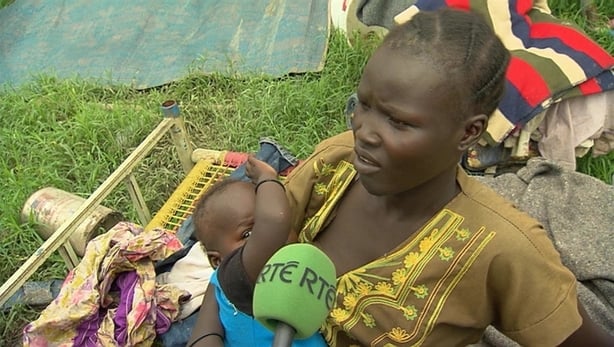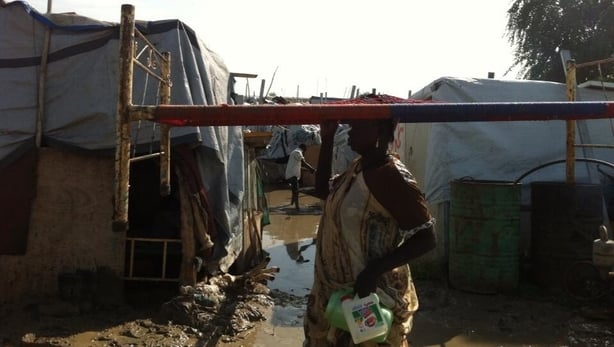You know its bad when experienced humanitarian workers say these are the worst conditions they have ever seen.
 by Laura Fletcher
by Laura Fletcher
Malakal town is the Capital of Upper Nile State and it has been one of the most contested towns of the civil war, with control changing hands six times between December and April.
The town is largely deserted now, though people are beginning to venture there once again.
However, you will find up to 20,000 people living in camps in the UN mission's compound on the outskirts of town.
This war may be being fought primarily by Nuer and Dinka, but Malakal is a good example of other ethnicities getting caught in the cross fire.
There is a mix of groups in the camps, including Dinka and Nuer, though numbers fluctuate depending on who controls the town.
At the moment it is the Government but there are great numbers of Shilluk people too caught in the middle in the battle for Malakal, they left the town behind.

Protection of civilian site five is largely Shilluk and it is here that I met Josephina, feeding her son while on the wire mesh of a bed frame on the bank of a pool of mud.
She must wade through this mud in her bare feet to get to her tent.
Knee high the muddy water does not stop at the door either but surrounds her belongings inside.
Josephina says that children and adults alike get sick from living and sleeping in these conditions, and blames them for the deaths of some of those in her group.
Her story is not unique, the wet and the mud is an inescapable reality in many parts of these camps.
As you walk through them, there are stalls on either side of the main road, and in the middle runs a brown road slick with mud.
It can be an inch deep or at least a foot deep, depending in where you stand.
A few things strike me as extraordinary, the first is the industriousness of people, regardless of the conditions.
Sitting on banks of mud men chat and joke as they scale fish, probably caught from the Nile and from a cooler box children sell ice-pops.
I have no idea where they got them from, or how the manage to keep them frozen in 35 to 40C heat.
The second is how incredible the women in particular looked, as if somehow immune to the muck and dirt around them.
While I and my colleagues are muddy and sticky and red-faced, the dignity the women here, regardless of ethnicity, has elevated them somehow above this mess.
New camps have been built and people are moving.

Beds, chairs, mattresses are all being carried an the heads of those keen to set up their new home on a drier more spacious site.
Josephina would like to move too, but she feels that you have to "know the right people" to escape.
Oxfam spoke to Josephina and her neighbours about their concerns and raised them with those co-ordinating the move to the new sites, and they are now being investigated.
For now though Josephina, and many more people like her, continue to raise their families in the mud.
It is about one month into the rainy season, and it is set to last until August or September.
Read Laura's report on South Sudan's long struggle for peace | Watch today's Morning Edition report | Watch today's Six One News report

